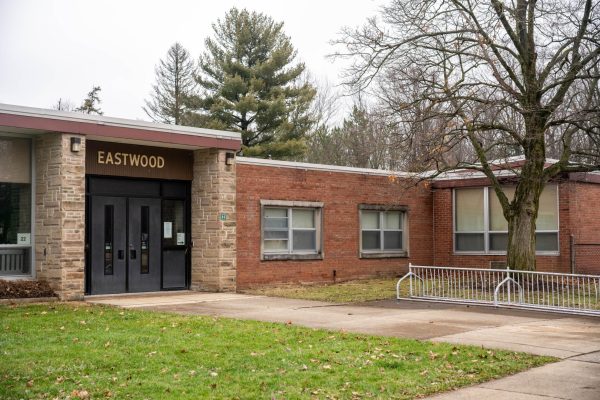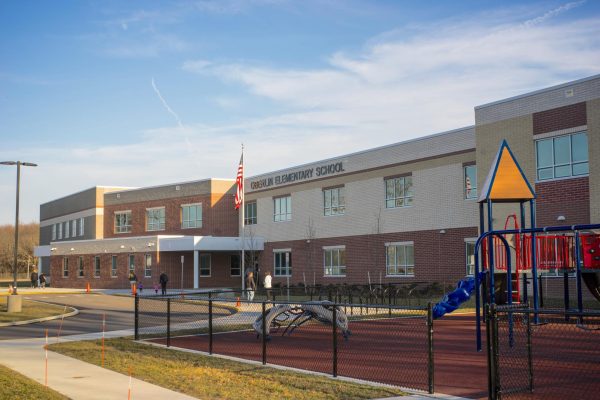City Council Candidates Engage With Voters
Eleven local candidates running for Oberlin City Council met with voters at The First Church in Oberlin for Tuesday’s Community Candidates Night. The event was organized by Oberlin’s chapter of the League of Women Voters with the goal of giving voters the opportunity to ask the candidates questions about local issues.
In previous years, Community Candidates Night has showcased candidates for other offices in addition to City Council, such as Ohio State Senate, the county auditor’s office, and local judicial spots. College Science Librarian Alison Ricker — who is a member of Oberlin’s LWV and helped organize the event — explained why this year’s event only focused on council.
“The only candidates who spoke were the 11 candidates running for City Council,” Ricker said. “They’re the only people who [spoke] because the other candidates were essentially unopposed.”
In response to voter concern over housing availability, many candidates proposed financial incentives for local businesses and commercial development opportunities in order to secure better housing — especially for low-income workers.
“We should similarly court new housing projects that provide accessible, eco-friendly options for all persons who would like to live in Oberlin,” wrote City Council candidate Mary Price in a message to the Review.
City Council incumbent Kristin Peterson has served three terms and is running for re-election. Peterson agreed that housing was a big issue on voters’ minds during the event.
“The two topics brought up most often during the conversations I had were about the perceived need for economic development and citizen participation in our governmental process,” wrote Peterson in an email to the Review. “The City has had an economic development position filled in the past, full time for many years and most recently part time. If elected, I plan to bring that conversation to the table.”
City Council candidate Peter Comings felt that some voters are concerned that City Council’s focus on environmental concerns come at the cost of looking into social issues.
“I support the broad goals of the city’s Climate Action Plan, but I worry that residents feel that local social issues are being given lower priority,” Comings wrote in a message to the Review. “More than once, I heard someone say that some residents felt disenfranchised in that regard.”
Voters also voiced concern regarding a perceived lack of communication from council. Currently, the main communication between City Council and the Oberlin community are bimonthly council meetings.
“We need community deliberation where all voices are equal and all voices are heard, where we listen to one another with empathy and understanding and think together about how best to address our issues,” wrote council candidate and Director of Libraries Emeritus Ray English in an email to the Review.
City Council incumbent Kelley Singleton was surprised that the issue of town/gown relations was not a concern voiced by the voters he talked to. If re-elected, he hopes to reach out to Student Senate and create more conversations directly with students.
“We desperately need to work on the relationship between the City and the College,” Singleton wrote in an email to the Review. “One cannot exist without the other.”
Ricker hopes the event will help encourage discourse between local government and the community and wants voters to continue engagement throughout the year.
“I wish more people would understand that City Council is composed of people who really care a lot about the city and they do try their best,” Ricker said.
Voters can voice their concerns by taking to the polls on Tuesday, Nov. 5. The deadline to register to vote is Monday, Oct. 7.







